National Security – Alternative Perspectives
18 Jul 2022 15:22:14
I got my copy of “10 Flashpoints in 20 Years – National security situations that impacted India” written by Manish Tewari in May 2022. Incidentally, I also received Sreeram Chaulia’s book “Crunch Time” in the same week. After reading a few pages and scanning through the two books, I could see that both the books had alternative perspectives about national security where there were many convergences too. So, I decided to first read both the books and then review them together.
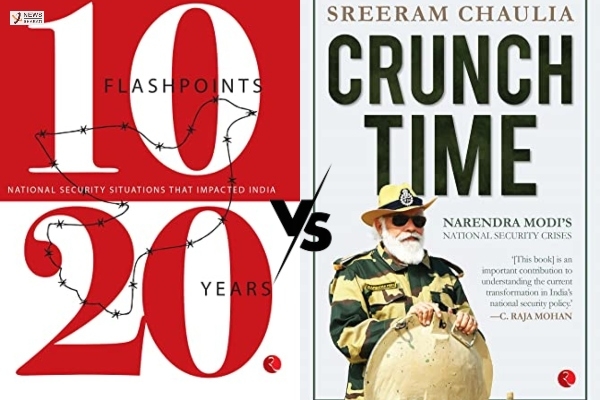
10 Flashpoints comes from a Congress leader of long standing who has stood by his party despite his multiple disagreements, especially on leadership issue. Manish Tewari also has had a ringside view of the security issues as a member of many committees of the Parliament, as a regular member of track2 diplomacy circle and as an MP of the border state of Punjab who lost his father to Pakistan sponsored Khalistani movement. However, it is a pleasant experience to read his views that are mostly bi-partisan and objective. He writes as an observer and not as a Congress leader, though at a few places he does show his bias for his party, which is natural.
Crunch Time is a book that has an advantage of being written by an academician who is also an unabashed supporter of Modi ji’s policies and strategies. To his credit he uses his academic tools to press home the point how Modi ji has been able to change the entire thinking on international diplomacy and response to security challenges. He is not an idealist utopian; he is grounded in realities of the real-world politics.
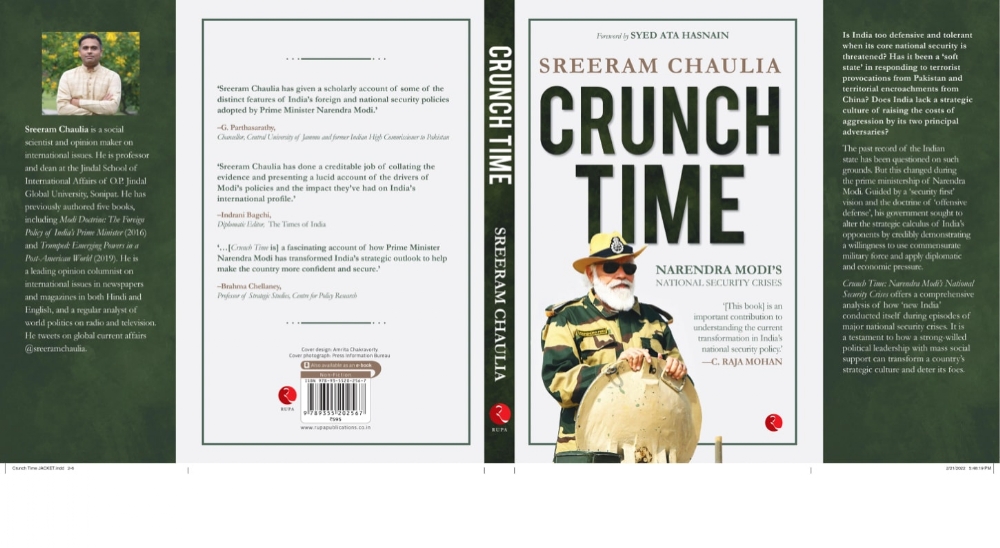
Chaulia is the new age citizen of Bharat who is positive about Bharat’s future based on his research and observations. Tiwari is an old world politician grounded in Congress politics and highly influenced by Nehruvian world view. Thus, Chaulia represents the new aggressive and assertive Bharat while Tewari presents the Nehruvian utopian world view tempered with diffidence that was the hallmark of Congress policies in international affairs and security issues. Only aggressive periods that I can recall is P V Narasimha Rao’s diplomacy in the face of Pakistani onslaught in UNHRC during 1994 and Manmohan Singh’s readiness to drop Communists and go before the people in 2009 on the plank of agreement with USA on the issue of nuclear policies of India.
There is a common ground between the two writers. To put it in Manish Tewari’s words, “As India aspires to become a player on the global state, the inescapable fact is that it still continues to be locked in the neighbourhood. It has to break out.” However, the prescriptions are different. Mr Tewari reflects on the possibility of peace more over negotiation tables with some give and take. Chaulia feels that only the ‘offensive defence’ approach would work in the case of both Pakistan and China as both are incorrigible neighbours who have more interest in destabilising India than working out a truce.
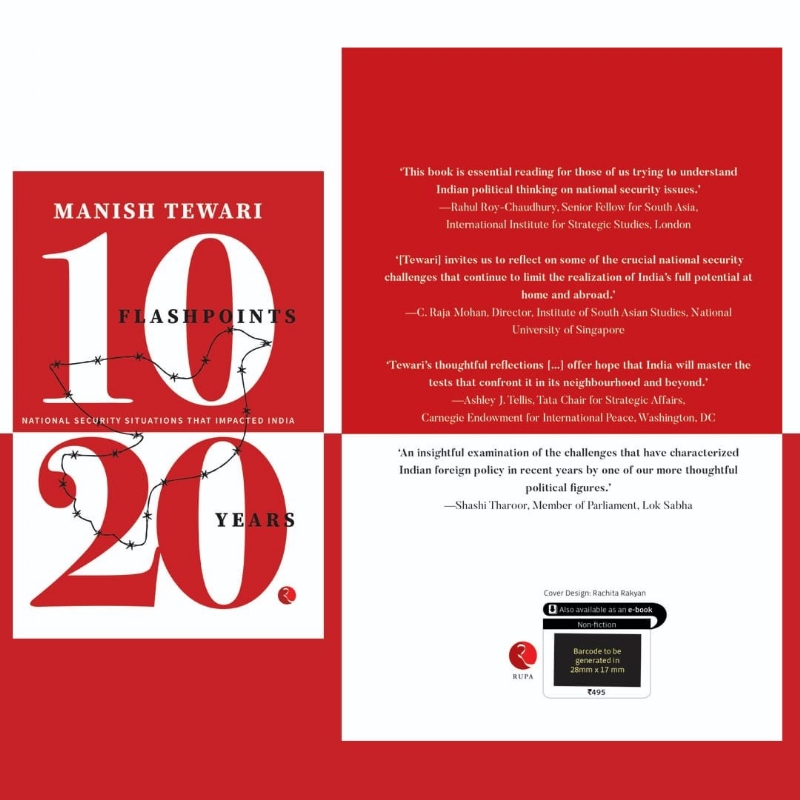
Manish Tewari asks, “Why India has not utilised the doctrine of offensive defence to a greater degree to neutralise challenges, specially from the semi-state actors?” He also notes in his chapter, Surgical Strikes: Testing Pakistan’s Redlines, “The Pakistani deep state is therefore an offspring of the ghastly ill-conceived partition of India.” Then goes on to say, “The new paradigm of launching terror attacks and strikes against each other, however, does not address the problems between the two countries in any way.” …… “However, kinetic action to engage neighbours cannot be a permanent state of play. Sustained dialogue over issues such as Kashmir, border resources, terrorism and other outstanding obstacles is the only way forward to create a shared future.” He remains doubtful, despite explaining the failure of successive Indian leaders to find a peaceful solution.
He describes the terrorist of Pulwama attack as “resident of our legitimate part of Kashmir.” (Italics are mine), giving an impression that the area under Pakistani occupation is not a legitimate part of India. Kashmir part of his book is actually most problematic as it shows a huge confusion in the established party of the time even today. Even his justification for continued imposition of Article 370 is fraught with inaccuracies as the reference points are mostly from Nehru fans. Manish Tewari goes on to indicate that nullification of Article 370 was instrumental in renewed belligerence of China. I can’t go into details and would like you to read it yourself.
As an insider for long years, Tewari’s observations on 1998 nuclear explosions and Kargil, are objective and neutral, with subtle appreciation for Vajpayee’s and BJP’s stance on nuclear policy. On Chinese incursions, of course, BJP and Congress don’t see eye to eye. The sections on Indo-China war, Ladakh conundrum are major conflicting points between Tewari and Chaulia. Reading the two versions, I would be somewhere in the middle with little tilt towards Chaulia. Chaulia’s account is more of an academician, while Tewari’s is more of a diplomat politician.
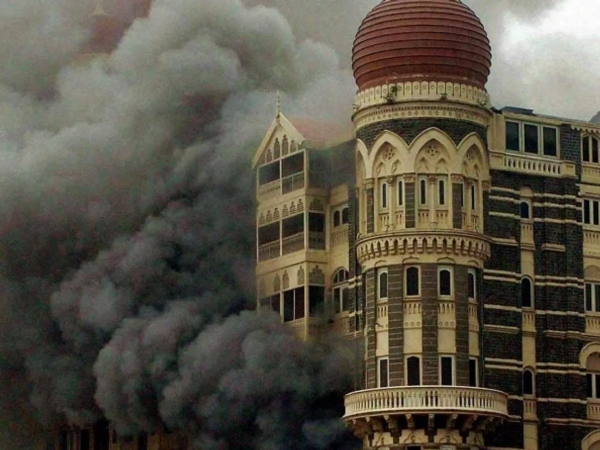
The most disturbing account in Tewari’s book is the chapter – 26/11 and the Lack of Military Action. He describes the atmosphere at that time with frequent bomb blasts across India’s cities that took place before 26/11. To my mind, more than lack of military action, his description of the initial response of the ruling party is more disturbing. The paralysis, total lack of co-ordination, lack of strategy about communication and TV coverage, putting a national spokesperson (Manish Tewari) on the ‘bench’, so to say, is instructive. Refusal to go for military option is known to all Indians. Here he provides us an insider account, why it happened. Contradicting his later stance in the book at the utility of kinetic response, in case of 26/11, he admits, “Wanted: Kinetic response. India should have reacted through the use of conventional force. The target should have chosen carefully.”
“What we had not understood then was that in the broader comity of nations, it is strength and power that earns respect…. Modi has recognised that he understands coercion and wants to demonstrate strength responsibly.”
My mind goes back to Parliament attack, which the author covers and takes an objective view why Operation Parakram did not work out. However, at least BJP government went all out with mobilisation of armed forces to make the world take a note and rush in to push Pakistan into some corrective action. He does analyse Operation Parakram objectively and points out its shortcomings.
About 26/11, he notes that from the time the attack began, till next day evening, “I was struck by the fact that there had been no communication of any sort from Delhi about the events in Mumbai. It seemed as if Mumbai could well be on another planet.” Tewari exposes the misplaced idea of secularism in Congress when he tells that he was sked to brief the press instead of Shakeel Ahmed. He was told by Ahmed Patel, “Sir, it is Shakeel Ahmad’s briefing today; he is the Minister of Home.” …. “Later I was given to understand that Shakeel Ahmad took my replacing him as the spokesperson that fateful Friday rather amiss.” with reporters having a field day in seeding wrong ideas.
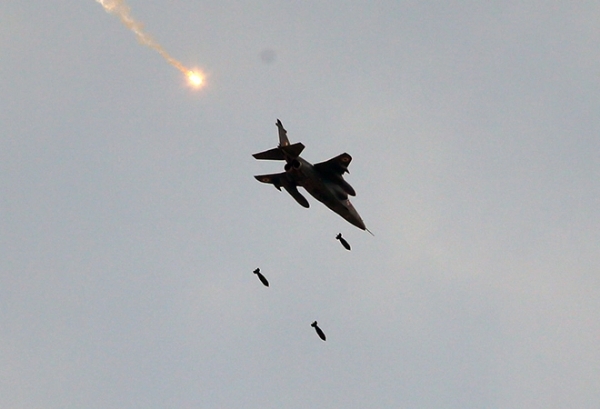
Sreeram Chaulia underlines “hardening of a soft state” as the central theme of his book. Another important point he makes is national security and foreign policy making a part of public debate. He quotes Prithvi Iyer, “Unlike in earlier eras when ‘the public opinion-foreign policy linkage’ was considered to be indirect at best and foreign policy was seen as a ‘low salience issue for the Indian public’, Modi and the BJP have placed foreign policy debates at the centre stage of their electoral campaign and galvanised voters through key foreign policy decisions.’ In context of Balakot air strike, he notes, “The perceived audience costs of the threats to Indian national security [indicate] the power of public opinion as an intervening variable shaping foreign policy decision-making.”
He notes, “If some leaders in democracies have run scared of ‘belligerence costs’ during crises due to the pacifism or apathy in the voting public, Modi has inverted the scales and constructed ‘belligerence benefits’ by virtue of inspiring ordinary citizens to expect that the country’s leader has to stand up to external bullying and aggression through forceful means.”
Manish Tewari claims that surgical strikes were done earlier too but were not given publicity by the government to avoid escalation of confrontation. Chaulia claims that the surgical strikes under Mr Modi were deep inside the enemy territory and very different from earlier minor strikes near the periphery of the LAC. He notes, “Combining kinetic military measures with diplomatic isolation was a smart and holistic approach to make Pakistan pay for its terrorist habit.”
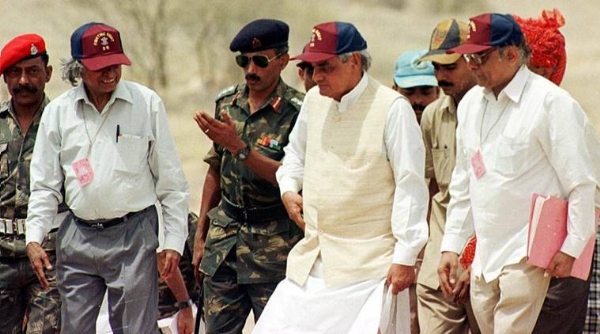
While Manish Tewari begins his book from 1998 Nuclear explosions and Kargil, Chaulia begins from Modi era. After that, the episodes examined are the same. Surgical strikes, Kashmir, Ladakh and issue of CDS and changing paradigms of national security issues. Tewari goes a little ahead and points out, “The digital revolution over the past three decades has transformed the trajectory of future military engagements. This revolution has transformed every area of human enterprise into a veritable battle field. India needs to be cognizant of the fact that the cyber domain has become weaponised.” But, he fails to show if any steps were taken in this direction by the governments of his party.
Chaulia quotes Air VM Arjun Subramaniam to indicate the changing paradigms of national security, “When I was a serving officer, I used to always feel that India’s strategic culture was excessively diffident, there was too much of an aura around ‘responsibility and restraint’; there was a typical desire to be appreciated by the world for being restrained. What we had not understood then was that in the broader comity of nations, it is strength and power that earns respect…. Modi has recognised that he understands coercion and wants to demonstrate strength responsibly.”
If you wish to form your opinion about India’s security and foreign policies, specially concerning its belligerent neighbours, you should be reading both the books.
PS: Both the books are published by the same publishing house - Rupa